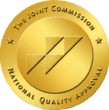The opioid abuse recovery treatment process is an all-encompassing strategy designed to aid individuals in overcoming their reliance on opioids. The treatment process usually comprises several stages, each aimed at addressing different facets of addiction. It commences with detoxification, moves onto therapy and counseling sessions, and ends with aftercare planning.
Firstly, detoxification involves monitored withdrawal from opioids, often aided by medication to manage symptoms. This phase can span a few days to a week. Following detoxification, therapy and counseling sessions are conducted. This stage, which can be administered as part of inpatient or outpatient care, employs a range of therapeutic approaches to help individuals comprehend and tackle the root causes of their addiction. Frequent therapies incorporate cognitive-behavioral therapy, motivational interviewing, and group therapy


























